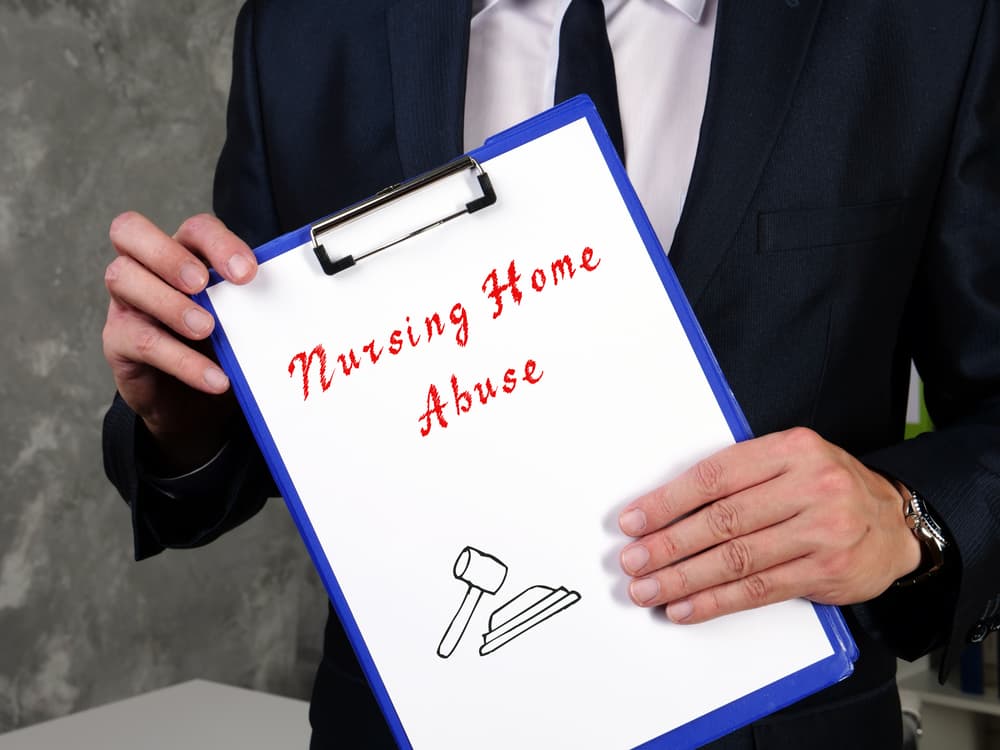When choosing a nursing home for your loved one, you expect them to receive the care and respect they deserve. Unfortunately, nursing home abuse is a harsh reality that affects vulnerable individuals. Understanding the different types of abuse is vital to recognize and report them effectively.
Nursing home abuse is a deeply distressing and alarming situation that no one should have to endure, especially such a vulnerable population. If you suspect that a loved one has been subjected to abuse in a nursing home in Kentucky, it is imperative to take immediate action. Contacting a Kentucky Nursing home abuse attorney well-versed in nursing home abuse cases can provide the guidance and support needed to ensure justice and safety for your family member.
By reporting nursing home abuse, you are not only taking a stand against the mistreatment of your loved one but also helping to prevent others from being victims of such inhumane practices. Remember, your actions can make a significant difference in protecting those who can’t defend themselves.
Definition and Types of Nursing Home Abuse
Nursing home abuse can take various forms, including physical, emotional/psychological, sexual abuse, financial exploitation, and neglect/abandonment. Each type represents a severe violation of trust and can have devastating consequences for vulnerable residents.
- Physical abuse involves any intentional use of physical force that results in bodily harm. It includes actions such as hitting, pushing, slapping, or using unnecessary restraints. Unexplained injuries like bruises, fractures, or burns may signal physical abuse.
- Emotional/Psychological Abuse includes verbal and non-verbal acts that cause emotional distress, isolation, or humiliation. Caregivers might insult, threaten, or intimidate residents, often leading to anxiety, depression, or withdrawal.
- Sexual abuse involves any non-consensual sexual contact or activity. It can include inappropriate touching, harassment, or coercion. Residents with cognitive impairments are especially vulnerable.
- Financial exploitation refers to the unauthorized use of a resident’s money, property, or assets. Common signs include sudden financial changes, missing possessions, or forged signatures.
- Neglect and Abandonment occur when caregivers fail to meet the resident’s basic needs, such as food, water, medication, or hygiene. Prolonged neglect can result in malnutrition, dehydration, bedsores, or infections.
Warning Signs of Nursing Home Abuse
Being aware of the warning signs is critical in identifying and reporting nursing home abuse promptly. Look out for the following indicators:
- Unexplained injuries or bruises, such as fractures, cuts, or burns.
- Bedsores, also known as pressure ulcers.
- Malnutrition or sudden weight loss.
- Withdrawal, depression, or anxiety.
- Sudden changes in behavior, agitation, or fearfulness.
- Poor personal hygiene.
- Inadequate medical care or untreated health conditions.
- Unsanitary or unsafe living conditions.
- Sudden financial changes or unauthorized use of the resident’s finances.
Who Can Report Nursing Home Abuse?
Reporting nursing home abuse can be done by various individuals who suspect or have witnessed abuse. It is essential to raise awareness and encourage anyone with concerns to come forward and protect vulnerable residents.
Potential reporters include:
- Family members or friends of the resident should always pay attention to any signs of abuse and take immediate action if there are any suspicions.
- The residents themselves should feel empowered to report any direct mistreatment they have experienced.
- Nursing home staff or other mandated reporters, such as healthcare providers and social workers, have a legal obligation to report abuse cases.
- Community members who suspect abuse in a nursing home should not hesitate to report their concerns.
Steps to Reporting Nursing Home Abuse in Kentucky
 If you believe a loved one is suffering from nursing home abuse in Kentucky, there are specific steps you can take to ensure their safety and hold the responsible parties accountable. You will want to gather evidence, report the abuse to the appropriate authorities, and seek legal assistance.
If you believe a loved one is suffering from nursing home abuse in Kentucky, there are specific steps you can take to ensure their safety and hold the responsible parties accountable. You will want to gather evidence, report the abuse to the appropriate authorities, and seek legal assistance.
Document the Abuse
Before reporting the abuse, gather as much evidence as possible to support your claims. Documentation may include:
- Taking photographs of any visible injuries to your loved one.
- Keeping records of any medical reports, bills, or changes in your loved one’s behavior.
- Noting down conversations or suspicious interactions with staff.
When you hire a Kentucky nursing home abuse attorney, they can work to uncover additional evidence that will be valuable in your claim.
Report to the Nursing Home Administration
Notify the nursing home’s management or administrators about the abuse you suspect or have witnessed. Document their response and any actions they take to address the situation. Your attorney can also do this on your behalf.
File a Complaint with the Kentucky Cabinet for Health and Family Services
The Kentucky Cabinet for Health and Family Services is responsible for investigating allegations of abuse in nursing homes. You can file a complaint online, by phone, or in person. Additionally, consider reaching out to the Kentucky Ombudsman Program, which advocates for the rights of nursing home residents.
Contact Local Law Enforcement
In cases of criminal abuse, involving local law enforcement is critical. Contact the police in the nursing home’s jurisdiction to report the abuse and provide them with all the evidence you have gathered. They will conduct an investigation and take appropriate criminal legal action against the perpetrators.
Reach Out to a Nursing Home Abuse Lawyer
After reporting the abuse and ensuring the safety of your loved one, it is essential to seek legal assistance from a nursing home abuse lawyer. They play a significant role in seeking justice and compensation for the victim.
Legal Protections for Nursing Home Residents in Kentucky
Kentucky has specific laws to protect nursing home residents. Anyone with loved ones in a nursing home should be aware of these laws. Federal regulations like the Nursing Home Reform Act also provide further protections.
Overview of Federal Protections
The Nursing Home Reform Act, established by federal law, aims to ensure the rights and well-being of nursing home residents. These protections include:
- The right to dignity, privacy, and respect.
- The right to be free from abuse, neglect, and exploitation.
- The right to receive adequate and appropriate care.
- The right to participate in one’s own care plan.
- The right to voice concerns and grievances without fear of retaliation.
Kentucky-Specific Laws and Resident Rights
Kentucky has regulations specifically tailored to protect nursing home residents. These laws outline the rights and standards of care that nursing homes must abide by. Some fundamental rights of residents in Kentucky include:
- The right to be free from abuse, neglect, and exploitation.
- The right to continued medical care and treatment.
- The right to voice grievances and have them addressed.
- The right to participate in social, religious, and community activities.
- The right to privacy and personal dignity.
Mandatory Reporting Requirements for Professionals
Kentucky law requires healthcare professionals, including doctors, nurses, and social workers, to report suspicions of nursing home abuse or neglect. These mandatory reporting requirements help ensure prompt intervention and protection for residents.
How a Nursing Home Abuse Lawyer Can Help
Nursing home abuse lawyers have the skills and experience to advocate for abused residents and their families. They play a vital role in seeking justice and compensation for the harm caused.
Investigating the Abuse and Gathering Evidence
A nursing home abuse lawyer will conduct a thorough investigation into the abuse allegations, collecting all relevant evidence. They will gather medical records, interview witnesses, and work with experts to build a strong case.
Filing Lawsuits Against Negligent Facilities or Staff
If the investigation reveals negligence or misconduct on the part of the nursing home or its staff, the lawyer can help file a lawsuit to hold the responsible parties accountable.
Pursuing Compensation for Damages
 A nursing home abuse attorney will seek compensation on behalf of the victim to address the physical, emotional, and financial harm caused by the abuse. This compensation can include:
A nursing home abuse attorney will seek compensation on behalf of the victim to address the physical, emotional, and financial harm caused by the abuse. This compensation can include:
- Medical Bills and Expenses: Covering treatment costs, hospitalization, medication, rehabilitation, or long-term care resulting from the abuse.
- Pain and Suffering: Addressing the physical pain and discomfort endured by the resident.
- Emotional Distress: Compensation for psychological trauma, such as anxiety, depression, or loss of enjoyment of life.
- Punitive Damages: When the abuse involves gross negligence or intentional harm, punitive damages may be awarded to punish the wrongdoer and deter similar conduct in the future.
Additionally, compensation may extend to relocation costs if the resident must move to a safer facility, legal fees, and other related expenses. A skilled attorney ensures that all potential damages are thoroughly assessed and pursued.
Advocating for the Rights and Safety of the Resident
A nursing home abuse lawyer will serve as a staunch advocate for the rights and safety of the abused resident. They will communicate and negotiate with all relevant parties to ensure the victim’s needs are met and proper measures are taken to prevent future abuse.
Common Challenges in Reporting Nursing Home Abuse
Reporting nursing home abuse can be challenging due to various obstacles. However, a nursing home abuse lawyer can help navigate these challenges effectively.
Fear of Retaliation Against the Resident
Residents and their families may fear retaliation from the nursing home staff if they report abuse. However, a skilled Kentucky nursing home attorney can provide guidance on protecting the resident’s rights and preventing any form of retaliation.
Lack of Evidence or Witnesses
Proving nursing home abuse can be brutal, especially when there is a lack of witnesses or clear evidence. However, an experienced lawyer can help gather evidence and present a compelling case based on circumstantial evidence and expert testimony.
Resistance from the Facility or Staff
Nursing homes may deny allegations of abuse and resist investigations. A nursing home abuse lawyer can handle these challenges for you, using their legal experience to ensure the truth comes to light and justice is served.
Frequently Asked Questions
What Should I Do If the Nursing Home Denies the Abuse?
If the nursing home denies the abuse allegations, now is the time to take swift action. Start by gathering any available evidence, such as photographs of injuries, medical records, or witness statements. This documentation can support your case and challenge the facility’s denial. Additionally, the issue should be reported to local authorities or state agencies, such as the Kentucky Cabinet for Health and Family Services, to initiate an investigation.
Most importantly, seek legal representation immediately. A nursing home abuse lawyer can investigate the claims, subpoena records, interview witnesses, and build a solid case to hold the facility accountable. Their involvement helps ensure that the rights of the abused resident are protected.
Can I File a Lawsuit If the Resident Has Passed Away?
Yes, you can still file a lawsuit if the resident has passed away due to nursing home abuse. Such cases are handled as wrongful death claims, allowing surviving family members to seek compensation for medical expenses, funeral costs, and the emotional pain of losing their loved one. Filing a lawsuit also ensures that the responsible parties are held accountable, preventing future harm to other residents.
How Long Do I Have to File a Claim in Kentucky?
In Kentucky, the statute of limitations for filing a nursing home abuse claim is generally one year from the date of the incident or the discovery of the abuse. However, certain circumstances, such as the resident’s incapacitation or fraudulent concealment of abuse, may extend the filing deadline. Consulting with a knowledgeable nursing home abuse lawyer early is critical to preserving your right to compensation and ensuring no missed deadlines.
Is It Expensive to Hire a Nursing Home Abuse Lawyer?
Hiring a Kentucky nursing home abuse lawyer is often more affordable than many families think. Most attorneys in this field work on a contingency fee basis, meaning they only get paid if they win the case or secure a settlement. Additionally, most offer a free initial consultation to discuss the details of your case and explain your legal options. Such a fee structure ensures that families seeking justice for their loved ones can access high-quality legal representation without upfront costs or financial barriers.
Taking Action: Protect Your Loved One by Contacting a Compassionate Kentucky Nursing Home Abuse Attorney Today
If you suspect nursing home abuse in Kentucky, act promptly to ensure the safety of your loved one. Follow the steps outlined above to document the abuse, report it to the appropriate authorities, and seek legal assistance. Contacting a seasoned Kentucky personal injury lawyer can provide the guidance and support needed to manage this challenging situation effectively.
